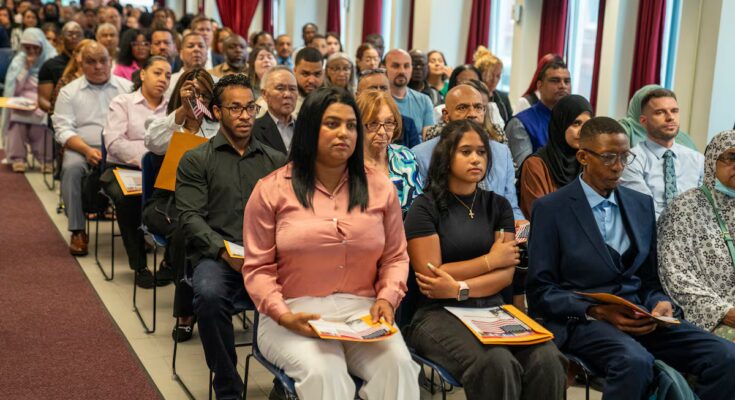For years, when a foreigner applies for permanent residency or green card In the United States, the reliance on financial aid granted by the federal government is being reviewed. In this sense, the Department of Homeland Security designed a plan to broaden the criteria by which an immigrant can be considered a “public charge,” including two that were not on the list such as Medicaid insurance coverage and Supplemental Nutrition Assistance Program (SNAP) food stamps. If the applicant has a high probability of becoming dependent on state finances, immigration authorities may consider him or her inadmissible and deny the change of status.
During his first term, President Trump implemented a similar measure, but Joe Biden repealed it to ensure immigrants did not face retaliation for receiving welfare benefits. Now the government is back on track and “proposes to repeal the 2022 Ineligibility for Public Charge Act” passed during the Joe Biden administration, considering that it “does not constitute the best implementation of the law, is inconsistent with the intent of Congress (…) and hinders the ability of the Department of Homeland Security to accurately and reliably determine whether certain aliens could at some point become a public charge.”
The project aims to ensure that current state benefits do not encourage the arrival of more foreigners and grants greater discretion to officials tasked with analyzing cases. It also opens the door to the creation of new economic biases. If an immigrant is deemed inadmissible due to public tax but meets other requirements, he or she can obtain a green card if he or she provides a bond that guarantees that he or she will not become a dependent in the future.
Fewer rights for immigrants
The Department of Homeland Security’s plan not only proposes an evaluation of the public benefits that a foreigner could request in the future, but also includes those he has received in the past and those he currently has. This situation has alarmed immigrant rights activists, who point out that this sanction will lead to fewer and fewer migrants requesting the social benefits to which they are entitled. “By creating chaos and confusion, it dissuades immigrants with legal status from seeking the medical care and help they need and are entitled to under federal law,” said Adriana Cadenas, executive director of the Coalition to Protect Immigrant Families.
Experts point out that the application of the rule will cause arbitrary and discriminatory decisions, where people in similar situations would get different results from different officials. Likewise, the proposal would encourage Citizenship and Immigration Services (USCIS) to introduce new policies in the future, through internal guidelines, without requiring advance notice or comment, which would cause a greater lack of clarity in the screening of immigrants.
Entry into force
The project was published on November 19 in the Federal Register and enters a public consultation phase, in which it hopes to receive comments from civil society, although it is not obliged to comply with them. After a period of 30 days, Secretary Kristi Noem’s office will decide whether to promulgate the regulation, revoke it in its original form, modify it or discard it.


